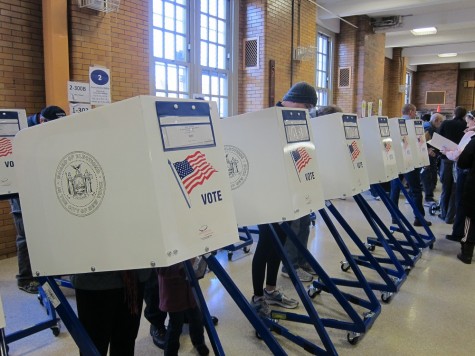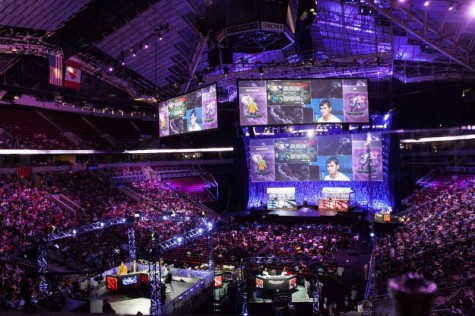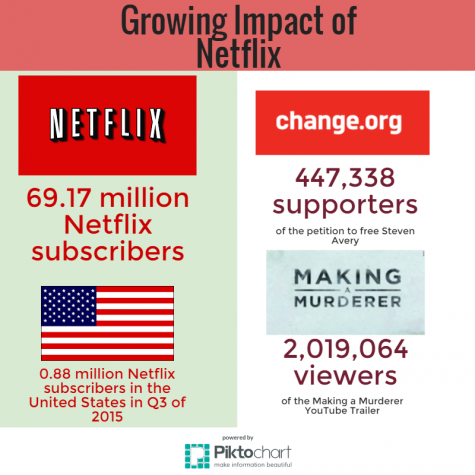MoviePass should take advantage of the theatrical experience
IMAX and 3D formats exclusive to theaters can play a major role in MoviePass’s expansion strategy and the revitalization of the movie theater. MoviePass’s current service only allows subscribers to watch one 2D movie a day.
October 23, 2017
From its website crash shortly after it reduced its monthly fee from $50 to $9.95 in mid-Aug. to its inability to meet overwhelming demand for its cheaper service, MoviePass’s rocky debut does not bode well for the company attempting to disrupt the movie theater model.
Increasing its workforce by nearly 200% since its price drop has failed to resolve the short-term backlog, but even if one were to trust MoviePass’ Chief Executive Officer Mitch Lowe’s comment that “we’ll be up to speed in a month,” the business’s long term profit model has not inspired confidence for its naysayers.
Paying for nearly full ticket prices every time one of its users goes to the theater, MoviePass sustains a loss if their subscribers utilize their pass more than once per month. Selling a majority stake to a New York Data Firm to finance their war of attrition, the company relies on the value of data collected from its users or use their large user base to negotiate favorable discounts for their users. But many, including AMC Theatres, have not placed their faith in the system, threatening MoviePass with a lawsuit with the goal of opting out of MoviePass’ service.
MoviePass is not the only company making recent efforts in the film industry.
Building its original movie offerings since its release of “Beasts of No Nation” in 2015, Netflix has added over 30 original films under its belt, and with a $6 billion budget for original content in2017, multiple films in the pipeline, and a steadily growing subscriber count, it will no doubt be a player in the film industry of tomorrow, but the company’s exclusion of theatrical releases have generated pushback.
Largely in response to the Netflix’s policy of releasing their movies online before a theatrical release or forgoing from a theatrical release altogether, spectators at the Cannes Film Festival booed “Okja”, one of Netflix’s original films. Christopher Nolan, whose recent movies include “Dunkirk” and “Interstellar”, has also expressed his disdain for the company’s policy.
“I think the investment that Netflix is putting into interesting filmmakers and interesting projects would be more admirable if it weren’t being used as some kind of bizarre leverage against shutting down theaters,” Nolan said in an interview with IndieWire.
With both Netflix and MoviePass offering memberships at similar price points, MoviePass must differentiate itself from the former for the sake of its own success and the survival of the movie theater. Intrinsically connected to the success of movie theaters, MoviePass can capitalize on the value of the theatrical experience. The current MoviePass only permits its subscribers to watch 2D movies.
The perception of IMAX and 3D movies as money-making gimmicks which lies at the root of the aversion to the formats can be broken down if they are available at no cost to audiences compared to 2D formats. Exposing audiences to theater-unique format gives them a reason to not only join MoviePass’ ranks but also to go to the theaters more.































![Setter Emma Lee (9) sets the ball to the middle during the match against Pinewood on Sept. 12. “[I’m looking forward to] getting more skilled, learning more about my position and also becoming better friends with all of my teammates, Emma said.](https://harkeraquila.com/wp-content/uploads/2023/09/DSC_4917-2-1200x795.jpg)














































































![“[Building nerf blasters] became this outlet of creativity for me that hasnt been matched by anything else. The process [of] making a build complete to your desire is such a painstakingly difficult process, but Ive had to learn from [the skills needed from] soldering to proper painting. Theres so many different options for everything, if you think about it, it exists. The best part is [that] if it doesnt exist, you can build it yourself, Ishaan Parate said.](https://harkeraquila.com/wp-content/uploads/2022/08/DSC_8149-900x604.jpg)


![“Animation just clicked in a way. I had been interested in art, but that felt different. [Animation] felt like it had something behind it, whereas previous things felt surface level. I wasnt making that crazy of things, but just the process of doing it was much more enjoyable, Carter Chadwick (22) said.](https://harkeraquila.com/wp-content/uploads/2022/08/Screen-Shot-2022-08-16-at-9.44.08-AM-900x598.png)


![“When I came into high school, I was ready to be a follower. But DECA was a game changer for me. It helped me overcome my fear of public speaking, and its played such a major role in who Ive become today. To be able to successfully lead a chapter of 150 students, an officer team and be one of the upperclassmen I once really admired is something Im [really] proud of,” Anvitha Tummala (21) said.](https://harkeraquila.com/wp-content/uploads/2021/07/Screen-Shot-2021-07-25-at-9.50.05-AM-900x594.png)



![“[Volleyball has] taught me how to fall correctly, and another thing it taught is that you don’t have to be the best at something to be good at it. If you just hit the ball in a smart way, then it still scores points and you’re good at it. You could be a background player and still make a much bigger impact on the team than you would think,” Anya Gert (’20) said.](https://harkeraquila.com/wp-content/uploads/2020/06/AnnaGert_JinTuan_HoHPhotoEdited-600x900.jpeg)

![“Im not nearly there yet, but [my confidence has] definitely been getting better since I was pretty shy and timid coming into Harker my freshman year. I know that theres a lot of people that are really confident in what they do, and I really admire them. Everyones so driven and that has really pushed me to kind of try to find my own place in high school and be more confident,” Alyssa Huang (’20) said.](https://harkeraquila.com/wp-content/uploads/2020/06/AlyssaHuang_EmilyChen_HoHPhoto-900x749.jpeg)













![“My slogan is ‘slow feet, don’t eat, and I’m hungry.’ You need to run fast to get where you are–you arent going to get those championships if you arent fast,” Angel Cervantes (12) said. “I want to do well in school on my tests and in track and win championships for my team. I live by that, [and] I can do that anywhere: in the classroom or on the field.”](https://harkeraquila.com/wp-content/uploads/2018/06/DSC5146-900x601.jpg)

![“I think getting up in the morning and having a sense of purpose [is exciting]. I think without a certain amount of drive, life is kind of obsolete and mundane, and I think having that every single day is what makes each day unique and kind of makes life exciting,” Neymika Jain (12) said.](https://harkeraquila.com/wp-content/uploads/2017/06/Screen-Shot-2017-06-03-at-4.54.16-PM.png)





















